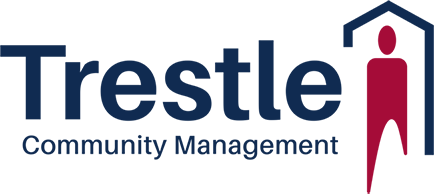When to Use HOA Special Assessment Fees vs. Reserve Funds
When it comes to homeowners associations, there are two main ways to pay for expenses that come up: special assessment fees and reserve funds. Both of these have pros and cons, so how do you know which is the best option for your community?
Today our community association management experts provide some answers to this question. When it comes to utilizing HOA and condominium association funds and communicating with residents, board members must follow approved guidelines and maintain trust with residents. Keep reading to learn more.
%20(S).jpg)
What Are Special Assessments?
Special assessment fees are collected when a community lacks enough money to cover an expense. However, passing a special assessment fee does not always guarantee that the community will have the money it needs when it needs it. If the reserve fund is well-funded, the money is already there. This makes special assessments a risky proposition as something to depend on for needed funds, but they can be very helpful in emergencies.
What Are Reserve Funds?
On the other hand, reserve funds are set aside specifically for planned expenses, such as roof replacement for common buildings or expected pool or amenity repairs. This gives homeowners some peace of mind about their homeowners association’s dependability for what is needed and when it will be done.
To set up a reserve fund, an HOA board must start this process by performing a reserve study. After the assessment is complete, the community may then begin saving money in its reserve fund to pay for future expenses such as roof replacement or painting building exteriors.
To determine how much money should go into reserves, homeowners association boards need to research similar communities and follow standard formulas used by community association management professionals. Working with a professional “HOA property management companies near me” can also be helpful when determining how to set up and utilize reserve funds.
%20(S).jpg)
When Should Homeowners Association Boards Members Use Reserve Funds?
Homeowners association boards should use reserve funds whenever possible rather than special assessment fees. Special assessment fees are typically one-time payments homeowners make to cover planned expenses or unexpected costs. However, homeowners often do not like to pay these types of assessments as they feel like it’s another way their HOA takes advantage of them or misuses funds accrued through regular management fees. Applying a special assessment can often lead to complaints about fees.
In most cases, choosing reserve funds is the preferred option for maintaining transparency and trust within your community. Reserves are ideal for “above and beyond” routine budget line items and services for various reasons, including:
- Residents already contribute to the reserve fund through routine management fees. They often prefer the board to tap into these funds before requiring an additional special assessment.
- It’s easier to pay for planned expenses (and communicate to residents with transparency about how funds are used).
- Funds are readily available to cover high-end costs for significant repairs or planned facility upgrades.
For example, if a homeowners association has a roof replacement for the common building planned next year, the board may set money aside in its reserve fund until enough is saved up because roof replacements can be very expensive. The homeowners association provides each resident with a notice that lets them know it will be using funds from its reserve accounts for this expense so residents have some warning ahead of time instead of reading about it in the homeowners association newsletter or hearing about it at a homeowners association meeting.
Reserve Funds and Emergencies
Condo association boards may also choose to use reserve funds for emergencies, but this should be reserved for extreme cases where immediate action must be taken. Reserve funds can be used to repair roofs caused by fallen trees after storms, repair common building HVAC systems during heat waves or cold snaps that require extra help to get through, and replace any other life-threatening equipment that could affect residents’ safety if not repaired immediately.
Using reserve funds instead of seeking special assessments helps homeowners feel more comfortable with their HOA board because they already contribute money toward these types of expenses in their regular monthly fees. It’s important homeowner associations make sure the reserves are well-funded, so costs for any routine or emergency maintenance don’t place homeowners in financial hardship.
No matter the situation or reason for using reserve funds vs. a special assessment, make sure your board follows homeowners association rules as outlined in the governing documents. If you’re not sure about the rules, work with one of the best HOA management companies that provide professional HOA management services!
Use Funds Appropriately With An HOA Management Company!
Assessing reserve funds is an important component of any HOA board member’s duties. When planning budgets, reserve funds, or special assessments, maintain a policy of transparency and excellent communication with residents in your community.
Trestle Community Management can provide you with the expertise you need to make sure that all of these aspects are executed smoothly for your homeowner association. We have extensive experience working with HOAs, and we know how difficult it can be to balance the needs of everyone in our communities when deciding on expenditures. Let us help determine what is best for your homeowner association management by providing expert guidance on this topic!



